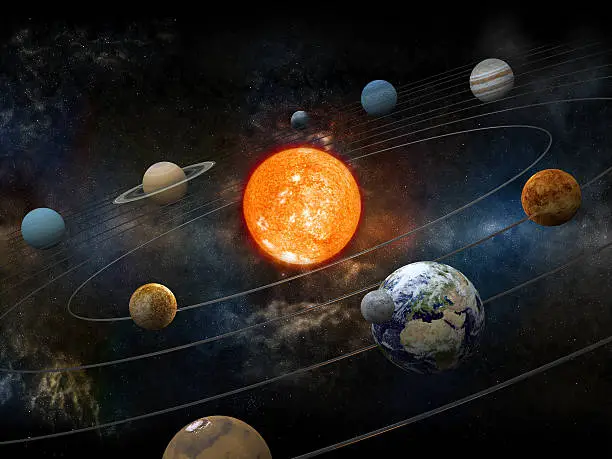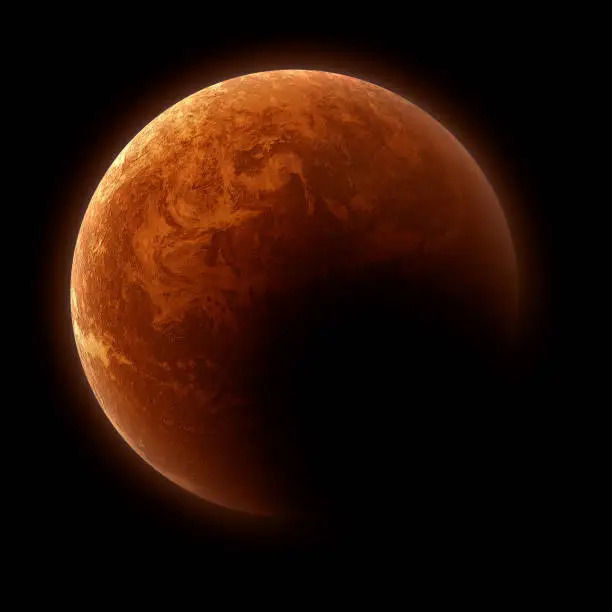Your Age on Other Planets: A Journey Through Cosmic Time
Published on July 9, 2025

On Earth, we measure our age in years, with each year marking another complete journey around our star, the Sun. This 365.25-day trip is the foundation of our calendars, our seasons, and our birthday celebrations. But what if you lived somewhere else in the solar system? The concept of a "year"—and therefore your age—would change dramatically.
Each planet orbits the Sun at a different distance and speed, resulting in vastly different orbital periods. A year on speedy Mercury is a blink of an eye compared to a long, slow year on distant Neptune. This means your age, the number of times you've circled the Sun, would be completely different depending on your planetary home. Let's embark on a fascinating journey through the solar system to discover how old you would be on other worlds.
The Simple Formula for Your Planetary Age
Calculating your age on another planet is straightforward. First, you need to know your age in Earth days. You can find this using our Age Calculator. Then, you just need to know how long a year is on the other planet, also measured in Earth days. The formula is:
Your Planetary Age = (Your Age in Earth Days) / (Length of Planet's Year in Earth Days)
Let's apply this to our celestial neighbors.
Mercury: The Swift Messenger
As the closest planet to the Sun, Mercury zips around its orbit faster than any other planet. A year on Mercury is only about 88 Earth days long. This means you would celebrate a birthday roughly every three months!
- Orbital Period: 88 Earth Days
- Age Calculation: If you are 30 years old on Earth (which is 10,957 days), on Mercury you would be about 124.5 years old (10,957 / 88).
Venus: Earth's Searing Twin
Venus is often called Earth's twin due to its similar size, but its rotation and orbit are bizarre. A year on Venus takes about 225 Earth days. Interestingly, a day on Venus (the time it takes to rotate once) is actually longer than its year!
- Orbital Period: 225 Earth Days
- Age Calculation: A 30-year-old on Earth would be approximately 48.7 years old on Venus (10,957 / 225).

Mars: The Red Planet
Mars has an orbit that's more similar to Earth's, but it's still significantly longer. A Martian year is almost twice as long as an Earth year. This means you would age much more slowly in terms of birthday count.
- Orbital Period: 687 Earth Days
- Age Calculation: If you're 30 on Earth, you'd be getting ready to celebrate your 16th birthday on Mars (10,957 / 687).
Jupiter: The Gas Giant King
Now we venture into the outer solar system, where the years become incredibly long. Jupiter, the largest planet, takes nearly 12 Earth years to complete a single orbit around the Sun. If you were born on Jupiter, you would still be a toddler in Jovian years even if you were an adult on Earth.
- Orbital Period: 4,333 Earth Days (or 11.86 Earth Years)
- Age Calculation: An Earthling of 30 years would only be about 2.5 years old on Jupiter (30 / 11.86).
Saturn: The Ringed Jewel
Famous for its stunning rings, Saturn moves even more slowly through the cosmos. A single year on Saturn is equivalent to almost three decades on Earth. This means most people would not even live to see their third Saturnian birthday.
- Orbital Period: 10,759 Earth Days (or 29.45 Earth Years)
- Age Calculation: If you are 30 years old on Earth, you would have just celebrated your 1st birthday on Saturn (30 / 29.45).
Uranus: The Sideways Planet
Uranus is unique for rotating on its side, but its orbit is what truly stretches our concept of time. A year on Uranus lasts a staggering 84 Earth years. For a human, this means you would likely never even complete a single orbit in your lifetime.
- Orbital Period: 30,687 Earth Days (or 84 Earth Years)
- Age Calculation: A 30-year-old on Earth would be a mere 0.35 years old on Uranus (30 / 84). You wouldn't even be close to your first birthday.
Neptune: The Distant Blue World
As the most distant planet from the Sun, Neptune has the longest year of all. It takes a monumental 165 Earth years for Neptune to make one full trip. Since its discovery in 1846, Neptune only just completed its first full orbit in 2011!
- Orbital Period: 60,190 Earth Days (or 164.8 Earth Years)
- Age Calculation: If you are 30 years old on Earth, your Neptunian age would be just 0.18 years old (30 / 164.8).
Conclusion: Age is Relative
This cosmic tour reminds us that time and age are deeply connected to our place in the universe. While our hearts and minds may measure time in memories and experiences, the clocks of the cosmos tick at vastly different rates. So the next time you celebrate a birthday, take a moment to appreciate the specific, wonderful journey you're on—one full trip around the Sun, right here on planet Earth.